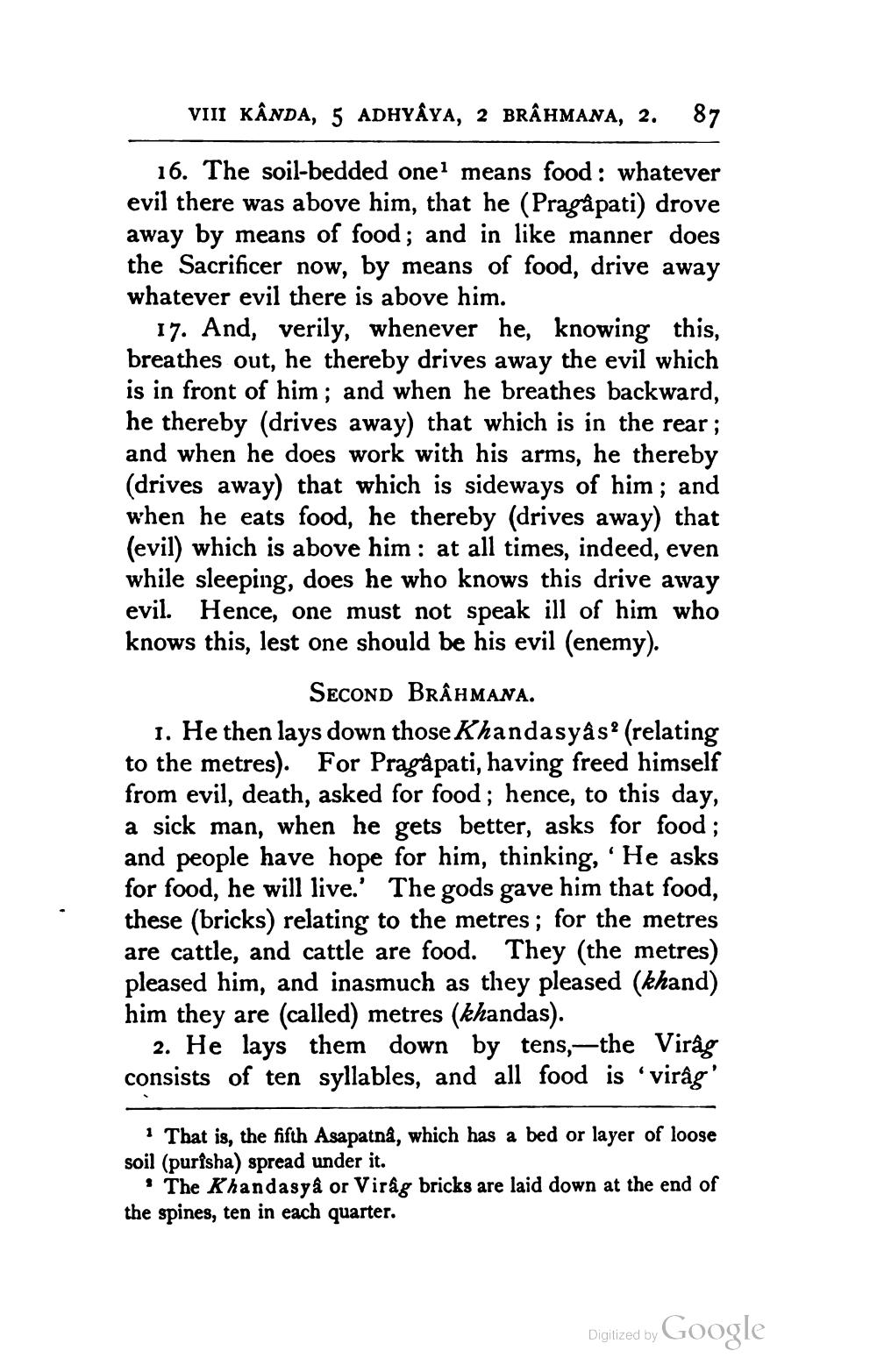________________
VIII KÂNDA, 5 ADHYAYA, 2 BRÂHMANA, 2.
87
16. The soil-bedded onel means food: whatever evil there was above him, that he (Pragå pati) drove away by means of food; and in like manner does the Sacrificer now, by means of food, drive away whatever evil there is above him.
17. And, verily, whenever he, knowing this, breathes out, he thereby drives away the evil which is in front of him; and when he breathes backward, he thereby (drives away) that which is in the rear; and when he does work with his arms, he thereby (drives away) that which is sideways of him; and when he eats food, he thereby (drives away) that (evil) which is above him : at all times, indeed, even while sleeping, does he who knows this drive away evil. Hence, one must not speak ill of him who knows this, lest one should be his evil (enemy).
SECOND BRÂHMANA. 1. He then lays down those Khanda syâs (relating to the metres). For Pragàpati, having freed himself from evil, death, asked for food; hence, to this day, a sick man, when he gets better, asks for food; and people have hope for him, thinking, 'He asks for food, he will live.' The gods gave him that food, these (bricks) relating to the metres; for the metres are cattle, and cattle are food. They (the metres) pleased him, and inasmuch as they pleased (khand) him they are (called) metres (khandas).
2. He lays them down by tens,—the Virág consists of ten syllables, and all food is 'virâg'
1 That is, the fifth Asapatna, which has a bed or layer of loose soil (purisha) spread under it.
· The Khandasyâ or Virág bricks are laid down at the end of the spines, ten in each quarter.
Digitized by Google




